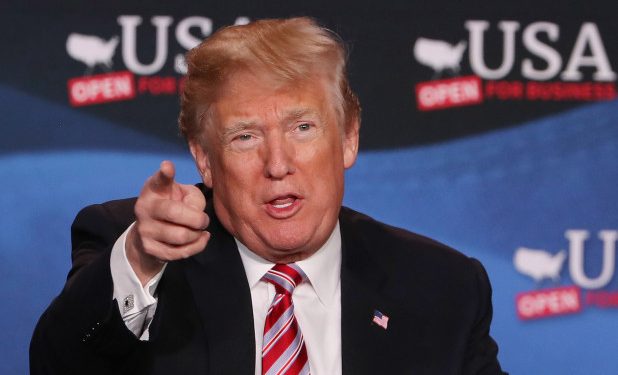Washington: The Trump administration is set to demand the restoration of all international sanctions on Iran in a move that will further isolate the US at the United Nations, test the credibility of the UN Security Council and possibly deal a fatal blow to one of former President Barack Obama’s signature foreign policy achievements.
At President Donald Trump’s direction, Secretary of State Mike Pompeo will travel to New York Thursday to notify the world body that the US is invoking the “snapback” mechanism in the Security Council resolution that endorsed the 2015 Iran nuclear deal.
“The United States intends to restore virtually all of the previously suspended United Nations sanctions on Iran,” Trump said Wednesday.
“It’s a snapback.”
As set out by the resolution enshrining the 2015 deal, snapback would re-impose UN sanctions that were eased in exchange for curbs on Iran’s nuclear programme.
But the US move faces steep opposition and could prompt a revolt from the council’s other members. None of them believes the US has the standing to do it because Trump withdrew from the nuclear deal two years ago.
Thus, invoking snapback will set the stage for a contentious dispute at the world body with the U.S. insisting it has done something that no one else recognizes as valid. It’s possible the U.S. call will simply be ignored by other U.N. members — an outcome that could call into question the Security Council’s relevance and ability to enforce its own legally binding decisions.
But Trump and Pompeo have made no secret of their intention to pursue the controversial diplomatic move particularly in the wake of the administration’s embarrassing defeat last week at the Security Council on extending the arms embargo on Iran that expires in October. The U.S. won just one other “yes” vote, with China and Russia opposed and the 11 other members abstaining.
As with the arms embargo, Russia and China bitterly oppose reimposing other UN sanctions on Iran.
So do other Security Council members, including US allies Britain and France, which are hoping to preserve the nuclear deal in the event Trump loses his bid for a second term in November’s presidential election and his Democratic opponent Joe Biden rejoins the agreement.
AP






































